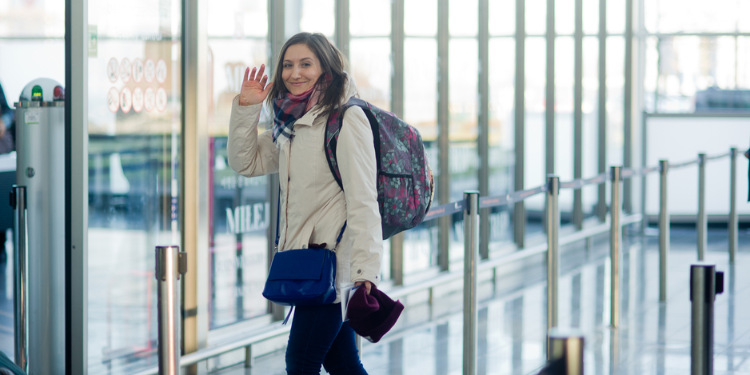
What is the one thing that you detest as an expat, and every time you go through it, it feels like it’s the first time? At Expat.com we voted: the goodbyes. Or as we prefer to call them: the “see you soon”. You pave your expat path away from family and friends, and you have to leave behind a place and maybe a pet — whichever your situation is, parting from the people you love and the space you feel comfortable in is an onerous process. Every single time.
How to say a proper goodbye

Goodbyes should be an opportunity for reflection. What are the things that you will miss the most and who are the people who have made an impact in your life, which lasts in time and guides you through life? Note these feelings and thoughts down, and create new, happy memories around them, just before you pack your bags. Throw a pyjama party with your best friends, organise a family long weekend getaway, or take your camera to capture all your favourite spots — from the funny graffiti on the wall by the train station to the flowering trees in your neighbourhood, and the café you have spent most Sundays in.
Treat the melancholy of goodbyes as an inspiration to tell to the people you love a big “thank you” and let them know why you appreciate them and what is that you are going to miss about them. Sometimes, words come easier when in writing. Why not compose and leave a compelling note for your beloved ones to read when you have taken off?
If you are moving with children, don't underestimate or disregard their emotions during this hectic time of goodbyes. Instead, give them the option to personalise their goodbyes too, and remind them that this doesn't have to be the end of a friendship and that they aren't cutting the ties with the place. Encourage your children to keep in touch with their mates via social media or penpalling, and help them plan reunions with their friends.
Moving abroad isn't easy. However, with the right farewell(s) and a progressive state of mind, the transition can be smooth and moving forward ca be exciting. Focus, not on the things that you are leaving behind, but on what is yet to come; and for every person you temporarily lose due to expatriation, think of the lessons you have learned from them and the support you have received. Of course, new friendships will grow in new countries — not to replace older ones but to enrich your expat experience.
How to deal with the pain of goodbyes

Saying goodbye to people and places is our least favourite thing about expatriation, but there are ways to thrive through the tears. First, dedicate to your goodbyes the time they deserve, which may start a month or even earlier to your departure. Don't try to squash all the interactions and emotions in last-minute meetings or at the airport, when you are already overwhelmed and exhausted by the practicalities of moving. Remember, a quality goodbye can be the beginning of a strong communication while apart.
We are avid supporters of packing light. However, there's no harm in collecting memories in the form of objects — as long as they have a reasonable weight and size. Whether it is printed photos, which you can frame in your new home, or your favourite mug from your parents' house, if it makes you smile, it deserves a space in your suitcase.
Last, acknowledge your emotions and let them flow. It is normal to be sad about leaving loved ones but also small things such as your favourite local dish or your bicycle. Don't feel embarrassed to admit that you are sorrowful and even nervous because life won't be the same from now on. But also allow yourself to be looking forward to the next big thing; remind yourself the reasons of your expatriation, your goals, and adventures around the corner. Because for every goodbye, there will be a hello.



















